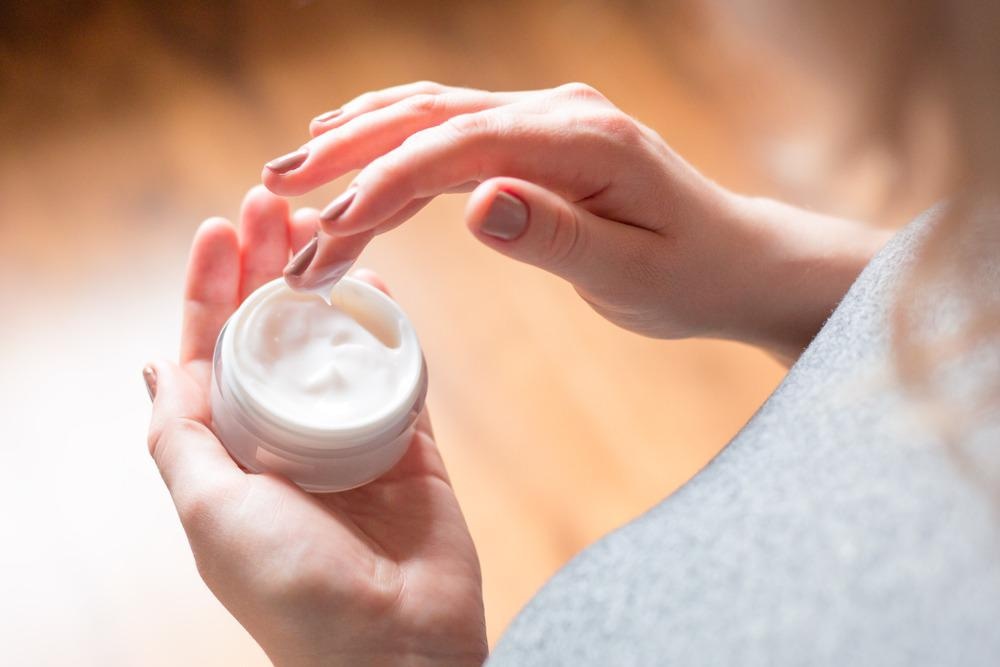Rheology instruments and techniques are used extensively in the cosmetics industry, supporting research and development for new products as well as quality control and assurance.

Image Credit: itakdalee/Shutterstock.com
As well as quality control and assurance, rheological methods are used by cosmetics companies to help develop and improve production processes and process controls.
In cosmetics, consumers expect high-quality textures, spreadability features, and appropriate flow behaviors. This is why rheology is so important in the cosmetics manufacturing industry.
Rheological tests enable manufacturers to predict how stable their products will remain over time and to understand how their structures are established and maintained.
Often, rheology is combined with rheometry, microscopy, and molecular spectroscopy to gain an in-depth understanding of a product undergoing testing, or a new production process, for example.
What is Rheology?
Rheology is the study of how some kinds of matter (non-Newtonian fluids) flow.
Often, rheological analysis is performed on materials in liquid states, but soft solids can also be covered with rheological methods.
Rheology is employed in diverse fields including materials science, engineering, physiology, pharmaceutics, geophysics, and human biology. In recent years, it has also had an important role to play in the establishment of emerging clean technologies.
Most materials are non-Newtonian fluids. This means that their viscosity is dependent on their flow speed or shear rate. The shear rate is the speed by which a fluid can “shear”, or move molecules from one layer to another when under the application of force.
In describing the ways that non-Newtonian materials flow, rheology sits at the inter-disciplinary junction between plasticity and elasticity on the one hand, and fluid dynamics on the other.
Rheology informs our understanding of how molecules are structured together in materials, and how this structure changes dynamically in set mechanical behaviors. Rheological analyses can be extrapolated to help scientists predict how bulk materials will behave after studying the behavior of those materials at the molecular level.
Rheology in Cosmetics
In cosmetics, rheology is used to analyze non-Newtonian fluids with complex nanostructures and understand their likely mechanical behaviors. In other words, how cosmetics products will behave after storage and in application.
Rheological analysis tends to be carried out on various instruments in cosmetics manufacturing companies. Some common uses of rheology in the sector include:
- Single point measurements of materials’ viscosity when they are undergoing production steps, for quality control
- Flow curve measurements or yield point measurements, for quality control steps in the laboratory
- Investigating potential new formulas and products for research and development
The main attributes that are important in determining whether a customer will be happy with a cosmetic product or not are how well the product is processed, how stable it remains after production, and its consistency from batch to batch.
These are all attributes that rheology is well suited for investigating.
Rheology Instrumentation in Cosmetics
Cosmetics manufacturers use a wide range of rheology instruments to carry out the kinds of work discussed so far. Different types, capabilities, and sizes of machines are required at various stages in the production cycle.
Handheld Spindle Viscometers
Simple handheld spindle viscometers measure viscosity directly at the source, with no need to remove samples from the production process. These devices can record single rotational measurements at a single rotational speed.
Handheld instrumentation tends to be simple to operate and able to return viscosity values within a few seconds.
Spindle attachments are usually modular, meaning users can swap out different types of spindles to measure a wider range of viscosities. This means that one device can measure viscosity in low viscous materials like perfumes all the way up to the thickest creams and lipsticks.
Benchtop Spindle Viscometers
These heavier-duty spindle viscometers are used to measure products according to ISO Standard 2555 (for rotational viscometers).
These devices typically have multiple rotational speeds for each spindle, which means they can identify more complicated rheological behavior.
Rheometers for Comprehensive Investigations
Comprehensive rheological investigations in cosmetics companies’ research and development departments often use complicated quality control rheometers to ensure extensive flexibility and measure numerous possible viscosities, as well as quick and reliable characterization for a wide range of samples.
Automatic lift control in devices like these, along with the ability to apply axial forces, means that these devices can carry out tack, break, and squeeze tests, as well as some tribological measurements.
Some comprehensive rheological instruments like these can also carry out spectroscopic and microscopic measurements. Such devices are used by research and development teams as well as academics.
Entry Level Rheometers and Outsourced Rheology
Smaller cosmetics manufacturers and startups can still benefit from rheological investigations for research and development, quality control, and quality assurance.
Entry-level rheometers are available, which often come with automatic temperature control settings.
Smaller firms can also typically outsource rheological investigations to larger companies or universities.
More from AZoM: Analytical Chemistry Applied to Cosmetics
References and Further Reading
McAleese, J. (2021). How is Rheology Applied to Pharmaceuticals? [Online] AZO Materials. Available at: https://www.azom.com/article.aspx?ArticleID=20581
Rheology solutions for cosmetics and personal care products. [Online] ThermoFisher. Available at: https://www.thermofisher.com/
Pilkington, B. (2020). Rheology in Green Technology. [Online] AZO Cleantech. Available at: https://www.azocleantech.com/article.aspx?ArticleID=1012
Disclaimer: The views expressed here are those of the author expressed in their private capacity and do not necessarily represent the views of AZoM.com Limited T/A AZoNetwork the owner and operator of this website. This disclaimer forms part of the Terms and conditions of use of this website.